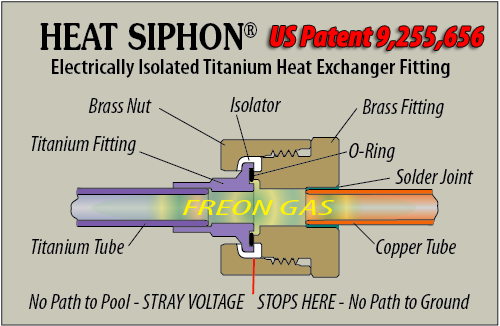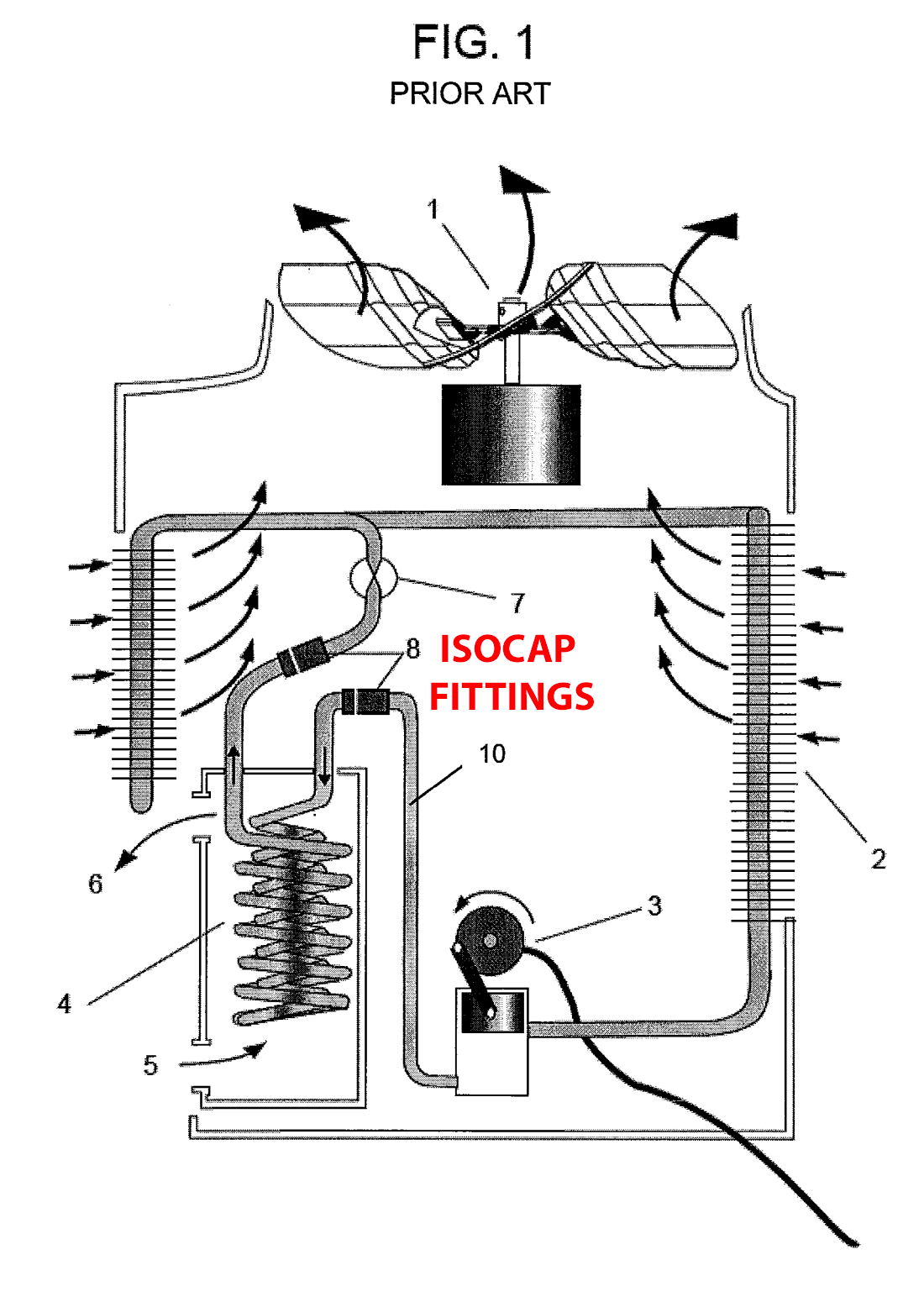 STRAY VOLTAGE STOPS HERE Hot Refrigerant Gas Can Pass
STRAY VOLTAGE STOPS HERE Hot Refrigerant Gas Can Pass
Although titanium eliminates chemical corrosion in even the harshest pool water, a small number of heat exchanger failures occur in pool heaters found to have stray low voltage traveling to or from the pool water through the heat exchanger, which would cause corrosion no matter what metal was used.
With the aid of sensitive digital volt meters, field servicemen can actually measure stray voltage between the heat exchanger and the power supply ground wire or local earth grounding rods required for pool equipment bonding. Floating grounds on power supplies, electronic chlorinators and even underwater pool lights can leak harmless low voltage electricity, less than 3 volts, into the pool which force electrolytic corrosion of the heat exchanger in a matter of weeks.
As the drawing shows, Heat Siphon uses a patented design electrically isolated Titanium fitting which seals the hot refrigerant gas inside the metal tube walls using o-rings, and a separate set of non-metallic insulator rings outside the first seal to break the conduction path normally made by the metal tube. Since the heat exchanger housing is connected to PVC schedule 40 piping and the shell is fabricated entirely out of injection molded or extruded PVC plastic, it also provides isolation from any stray voltage.
HEAT SIPHON HISTORY -Before the first electrically isolated titanium heat exchangers were introduced, a local Heat Siphon owner was having his third heat exchanger replaced free of charge (according ot our warranty) and both he and the factory service people were losing patience trying to find the cause of this repeated corrosion problem, when we realized that he owned an electronic chlorinator which was installed at the outlet of the Heat Siphon and it was causing galvanic corrosion. These devices apply low voltage into the water to generate chlorine from salt in the pool water and it was inducing stray voltage into the heat exchanger and forcing corrosion to occur. Since we replaced that heat exchanger with a new electrically isolated one we haven't heard a word from him. That was 1991.


